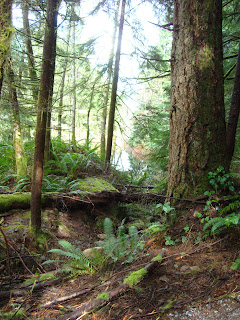The Earth takes care of us. To spend time outdoors, in the world, in nature, experiencing and exploring our natural environment, makes human beings happier and healthier. I see this in my own children: a day on the beach, or hiking a trail, or playing in the park, or helping out in the garden makes them a lot calmer and improves their mood better than any indoor activity.
Being outdoors is good for kids, this is a scientific fact, and here are some online articles that prove it (if you need more proof than your own observation!):
Several studies have shown that regular, unstructured playtime in nature makes kids smarter, calmer, more self-disciplined, more cooperative, and happier.
Studies have provided convincing evidence that the way people feel in pleasing natural environments improves recall of information, creative problem solving, and creativity. Early experiences with the natural world have been positively linked with the development of imagination and the sense of wonder. Wonder is important as it a motivator for life long learning. There is also strong evidence that young children respond more positively to experiences in the outdoors than adults as they have not yet adapted to unnatural, man-made, indoor environments.
The natural world is essential to the emotional health of children. Just as children need positive adult contact and a sense of connection to the wider human community, they also need positive contact with nature and the chance for solitude and the sense of wonder that nature offers. When children play in nature they are more likely to have positive feelings about each other and their surroundings.Outdoor environments are also important to children's development of independence and autonomy. Outdoor space allows children to gradually experiment with increasing distance from their caretaker. While the development of greater independence from toddlerhood to middle childhood can happen within the confines of indoor spaces, safe space outdoors greatly adds to the ability of children to naturally experiment with independence and separation, and the adult's willingness to trust the child's competence which is essential for separation to happen. This is particularly important for children who live in small and crowded homes.
As part of this year's Child of Our Time series, Dr Livingstone's team studied play, and found that the more children played, the more they laughed, especially when outside. They found the children who played most laughed up to 20 times as much as the children who played less.
And for some tips on how to encourage outdoor play, this article from sparkpeople.com is a good read:
Happy Earth Day, and enjoy the great outdoors today, and all other days (at least if the weather isn't too nasty...).






No comments:
Post a Comment